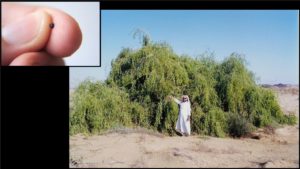The Ministry of Jesus in Galilee
Mark 1:16—8:30
A New King (1:16—3:6).
Kingdom is Near (1:15)
Popularity (1:16-45).
Conflict (2:1—3:6).
Jewish Leaders Reject Him (3:6)
A New Kingdom (3:7—6:6)
Kingdom Has Small Beginnings (4:3)
Continued Conflict (3:7-35).
Parables (4:1-34).
Parable of the Sower (4:1-9).
Parable of the Sower Interpreted (4:10-20).
Parable of the Lamp (4:21-25).
Parable of the Harvest (4:26-29).
This is the only parable completely unique to Mark.
Jesus returns His attention to the crowds for the following parables.
The focus now is on the seed and on the growth of that seed, not on the soil in which the seed is planted—good soil is assumed.
That seed is still the same as it is in the Parable of the Sower, the Word (4:14).
The farmer doesn’t sit there staring at the spot where he planted the seed, waiting for it to sprout and grow.
He isn’t surprised when it grows, but how exactly is a mystery.
He may plant and water, but it’s God who gives the increase (1 Cor. 3:6).
We may plant seed all day, but we never know what goes on behind the scenes to get that seed to grow in a man’s heart.
It grows little by little in the good soil, but then it bears fruit and is harvested.
This is also indicative of the kingdom—the word is planted and the kingdom grows and will be harvested when it’s ready on the Last Day.
The implanted word saves our souls (James 1:21).
Parable of the Mustard Seed (4:30-34).
Likened to a mustard seed (4:30-32).
You might notice a common theme among these parables by this point—three of the four are about growing seeds.
Seeds scattered on various soils → seeds on good soil grows and is harvested → a small seed growing into a large shrub.
He talks of the essence of a parable here, to find a likeness, comparison, or picture.

Image credits: https://john13verse34.blogspot.com/2012/03/lent-2-thursday-mustard-seed.html What’s particularly interesting about a mustard seed? It is the smallest seed known to His audience.
The kingdom of God, then, has a small, humble beginning.
The mustard shrub is the largest herb that they knew, growing to about 8-10 feet high.
While the church would have small beginnings, it wouldn’t stay that way for long!
It would be so large, even birds would nest there.
“The blood of the martyrs is the seed of the church.” ~Tertullian, 2nd Century.
One interpretation I came across—the mustard plant was an invasive species, sprouting immediately after being planted, growing large, and attracting unwanted birds that would eat other nearby seeds.
He states that the kingdom of God is “like a pungent shrub with dangerous take-over properties” (Crossan 65).
Parables end (4:33-34).
Jesus spoke many parables not recorded here. Several others are recorded in Matthew and Luke (none in John).
He spoke as His listeners were able to hear, to understand.
Jesus told His disciples much later, on the night He was betrayed, that He had plenty to tell them, but they were not able to hear it (John 16:12).
He doesn’t tell us more than we can handle—if someone can only handle milk, they might reject the meat and perhaps find some other source of food.
He did not speak plainly to the multitudes, to obscure His teachings from His enemies and the casual listener and to encourage true seekers.
He continued to explain all things to His disciples, likely the same people from 4:10.
Not all such explanations are recorded here, but enough is given to provide a framework for understanding them.
